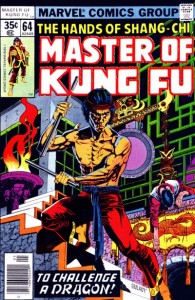
Don't sell tainted milk!
I’ve been thinking a lot about the two men, a dairy farmer and a milk salesman, who were executed on Tuesday for their role in the tainted milk scandal in China. You may recall that 30,000 people were sickened, and six died, from milk tainted with melamine – an industrial chemical none of us had ever heard of before.
Here’s the thing: we tend to look on these executions with distaste, a sign that China, despite its vibrant role in global capitalism, is still out of touch with Western ideas. There can be no doubt that these executions, however, are in the service of capitalism. They are indented as a sign that China takes its regulatory role seriously. But still – executing people because of their business decisions doesn’t sit well with us here in the west. It seems cruel and oppressive.
 Personally, I’m not a big fan of the death penalty. I don’t know that I have anything against it on principle, but I tend to think it is deployed unjustly and haphazardly in the US. Yet here, we would never think of executing businessmen for their decisions, even if those decisions resulted in death. We punish businesses, not people, for these sorts of things. No one went to jail for passing off Vioxx as a safe pain reliever, did they? Yet the decision to do harm on a grand scale, in the service of profit, is made not by corporations but by people – people who make amoral decisions because they want to enrich themselves and their interests.
Personally, I’m not a big fan of the death penalty. I don’t know that I have anything against it on principle, but I tend to think it is deployed unjustly and haphazardly in the US. Yet here, we would never think of executing businessmen for their decisions, even if those decisions resulted in death. We punish businesses, not people, for these sorts of things. No one went to jail for passing off Vioxx as a safe pain reliever, did they? Yet the decision to do harm on a grand scale, in the service of profit, is made not by corporations but by people – people who make amoral decisions because they want to enrich themselves and their interests.

I know what Shang-Chi would do.
In the US, we see killing another human being out of passion or malice or for that particular person’s wealth is reprehensible, but killing lots of people in order to promote the riches of a company, while certainly not good, is nowhere near as bad. It is possible, however, that we may have it backwards. Most people who commit murder are those who are emotionally out of control or who have adopted a lifestyle which takes them outside the law. A deterrent isn’t gong to have much of an impact on such people. On the other hand, those who commit industrial or corporate murder do so only because they believe they opportunity for profit outweighs the consequence of exposure. Maybe the specter of lethal injection would make these guys think twice.



Hi Dave,
Great post. I think we could take your thoughts one step further and ask to what ends does any company make a profit? A big pharma company makes people healthy, but then there are jsut mroe people to feed/house. What is the ethical answer to that?
It’s certainly true that our criminal justice system isn’t designed to punish people proportinately to the harm their illegal actions cause (or Cheney, Rumsfeld and Wolfowitz would all be in serious trouble), and while I’m very sympathetic to the idea that we should take the punishment of corporate wrong-doers (which includes the whole range of specific wrong-doing acts) more seriously than we do (and, as you point out, that in fact we often reward corporations for behavior that we would punish an individual for), I think that what cases like this really point to is the limitations of violence as a tool of the state. It would take a long time to flesh that claim out, so I’ll just jump to the end of it: I would predict that in fact the deterrent effects wouldn’t work much better b/c almost invariably no one of these people is really responsible for corporate crime. The thing about the Chinese examples is that those guys were just scape-goats, parts of a corrupt system murdered to exculpate the machine itself. Deterrence only works if someone sees their responsibility as an individual, but that’s precisely what corporate behavior obviates.
Someone knew exactly what they were doing when they decided to treat a corporation as a separate entity (for tax purposes, of course). This entity cannot go to prison and can dissolve when things go awry. I didn’t agree with all of the views expressed in “Capitalism, A Love Story.” But, Moore did shed some light on this very topic. The greatest fear of large corporations is the general public understanding what they are *really* doing behind the scenes. Fortunately for them, the general public doesn’t give a damn (or vote) until life hits them hard.
I agreed with everything you said, except your conclusion. If execution were a possible consequence, you can bet those executives would be using every legal dance they could afford to, at the very least, place all the blame on lower-level staff. There would be no paper – or electronic – trail, and the politicians those companies donated to would make sure no laws were passed to enable the legislation to be used fairly to hold the execs accountable.
China executes everyone as they please – not really a great model for an effective justice system.
Also, I don’t think legally killing people is a reasonable option in a sane society. It might be emotionally satisfying in some cases (lord knows I’d love to see a lot of insurance company executives lined up & shot for decisions which killed people through neglect), but satisfying a taste for vengeance isn’t a good foundation for a just society & presumably a just society is what we’re still aiming for.